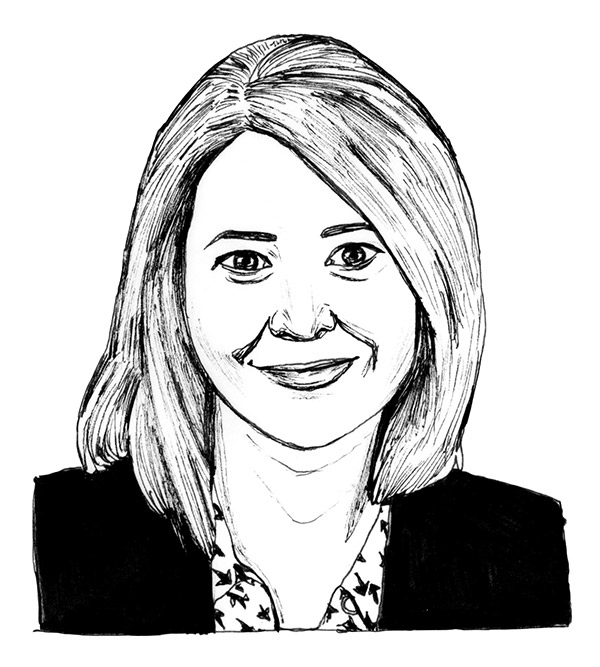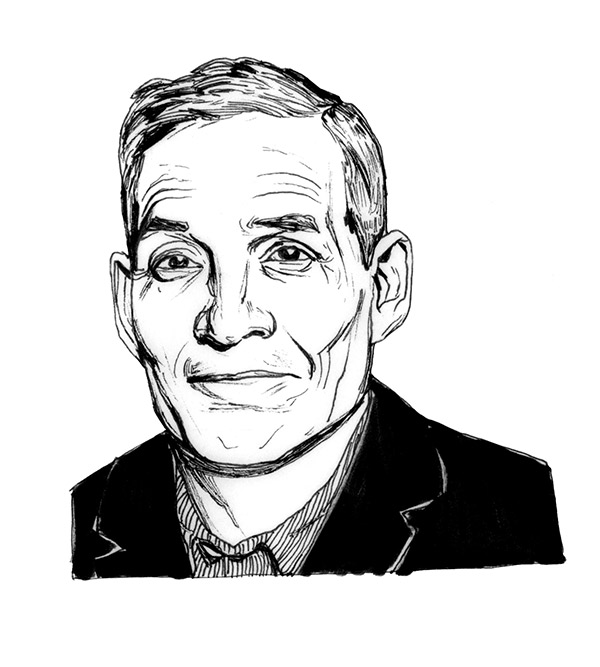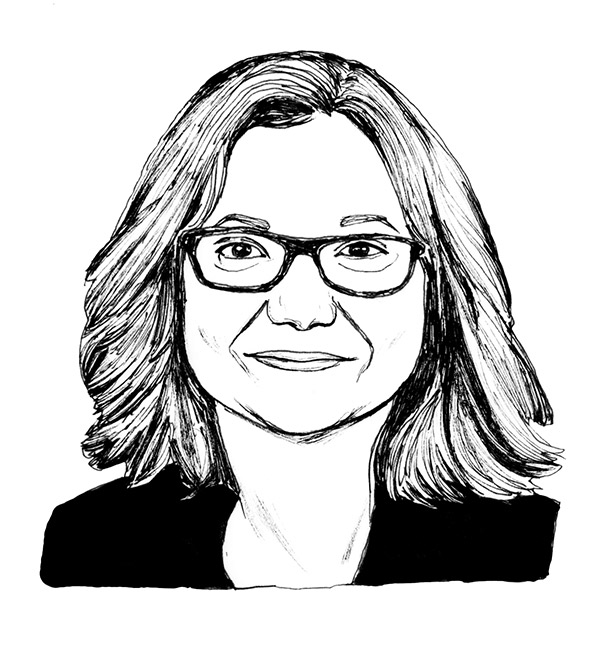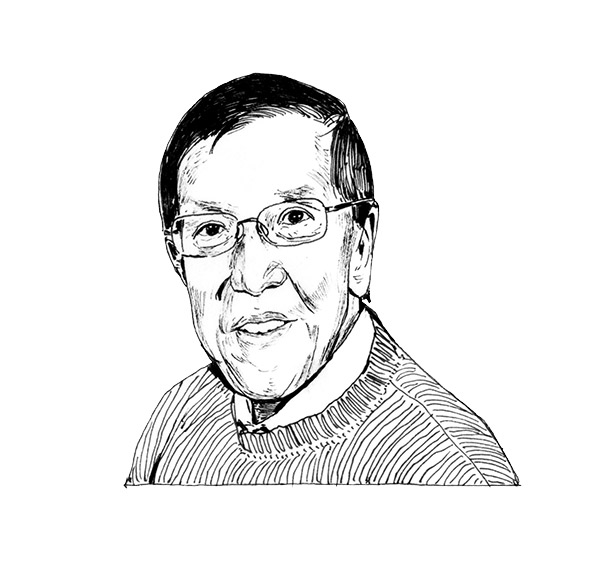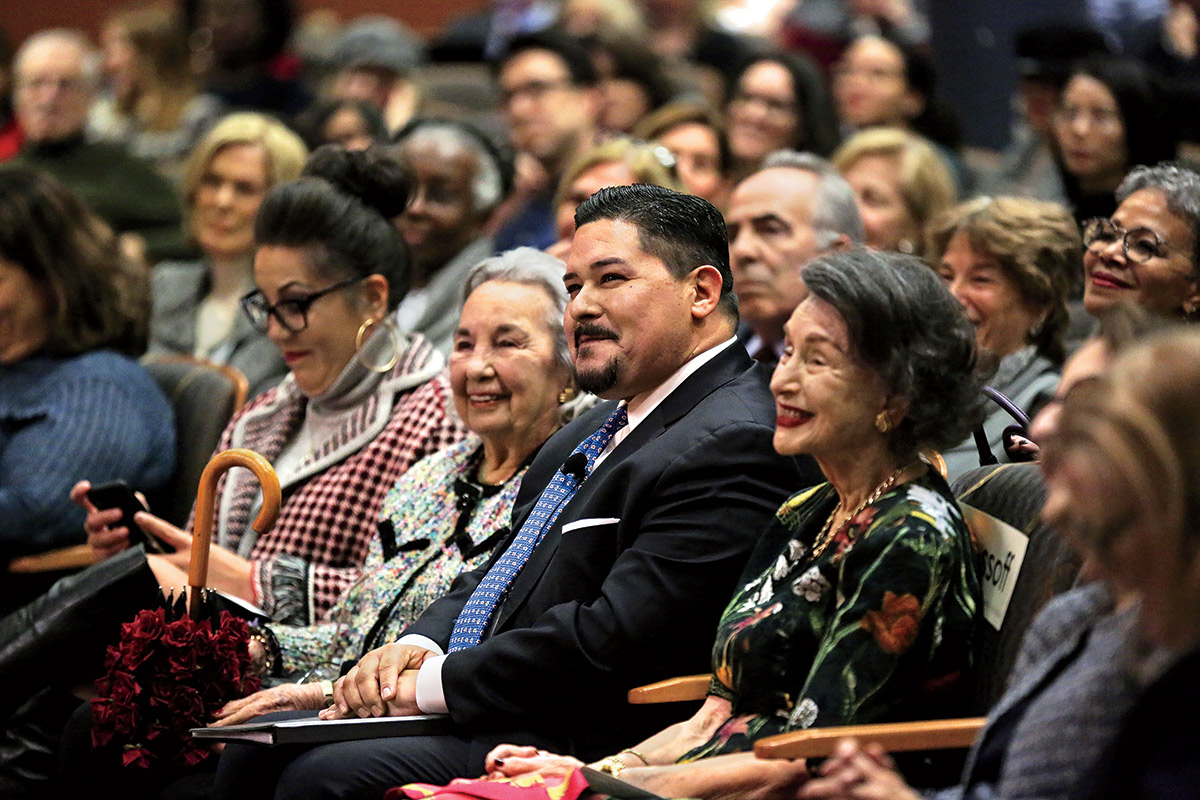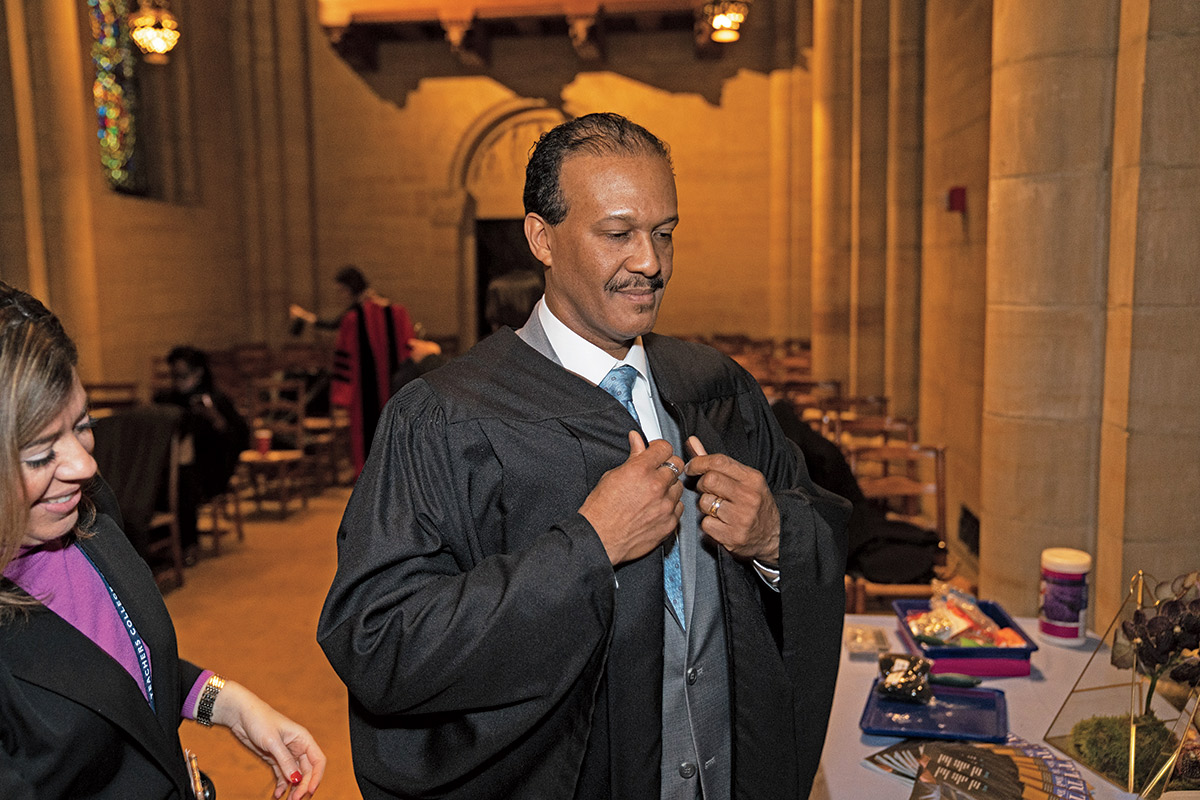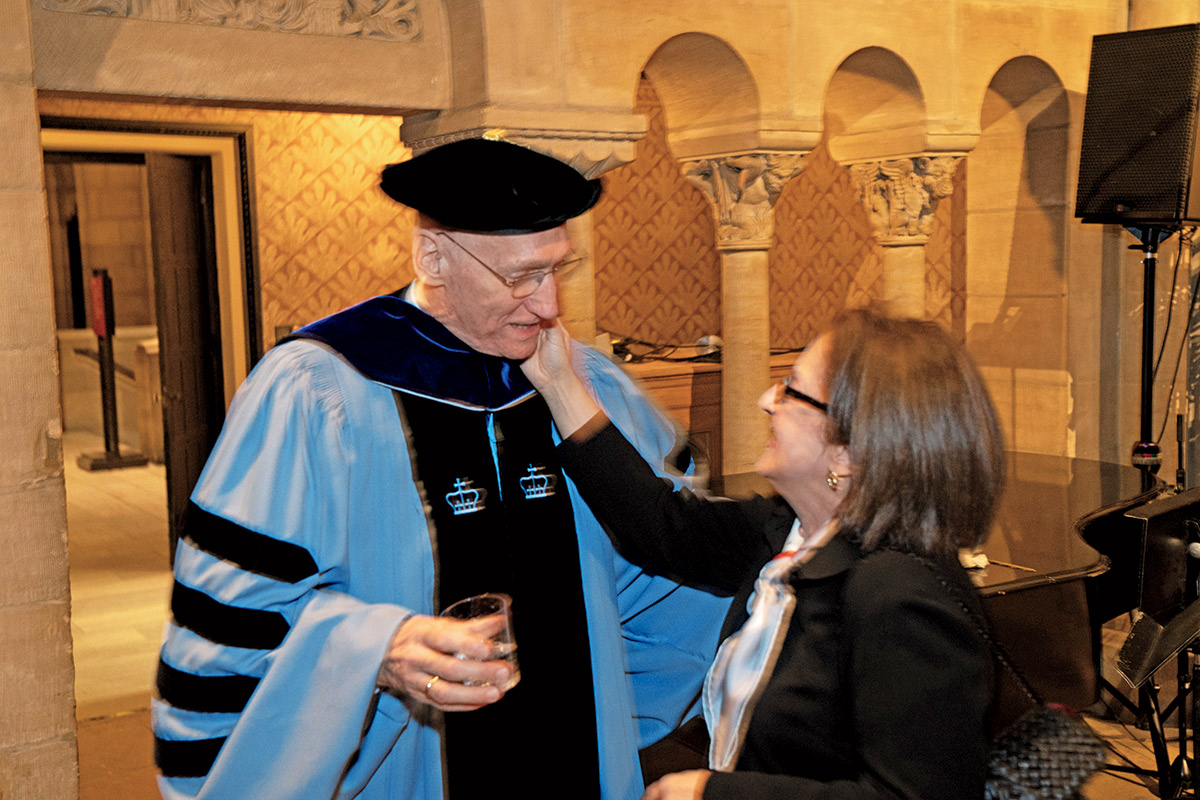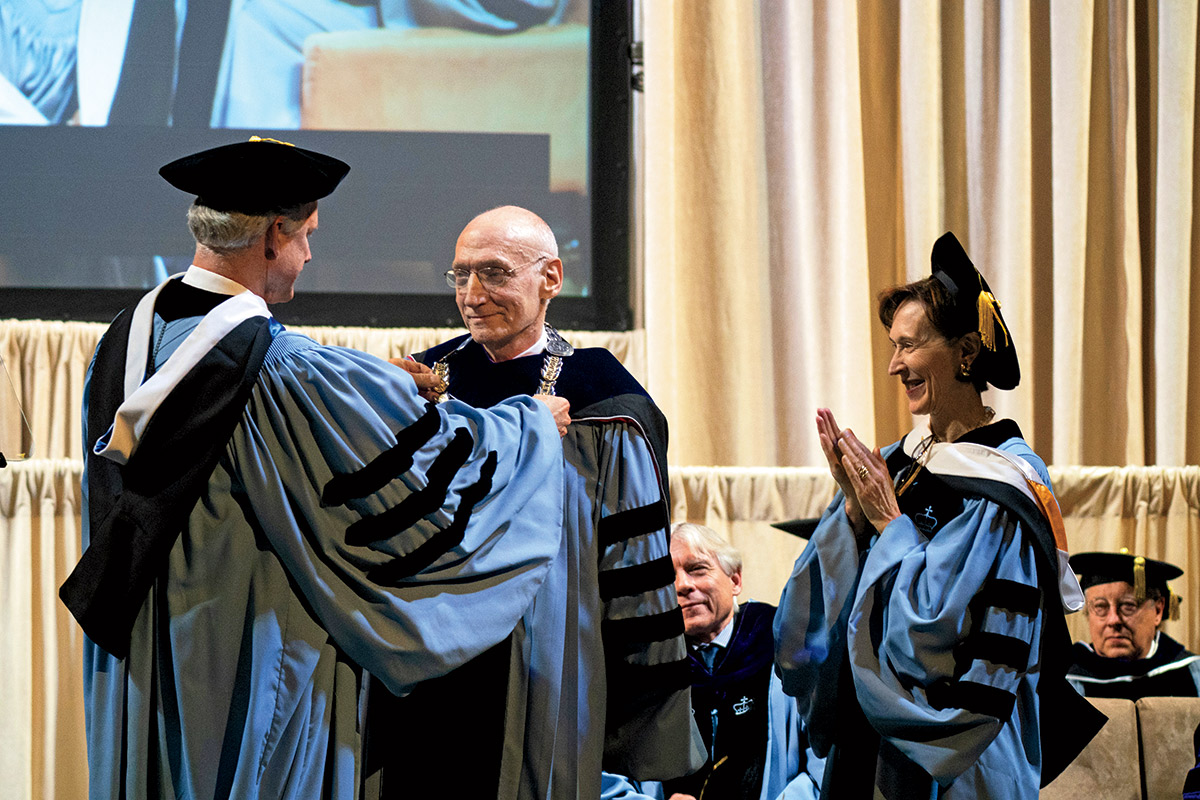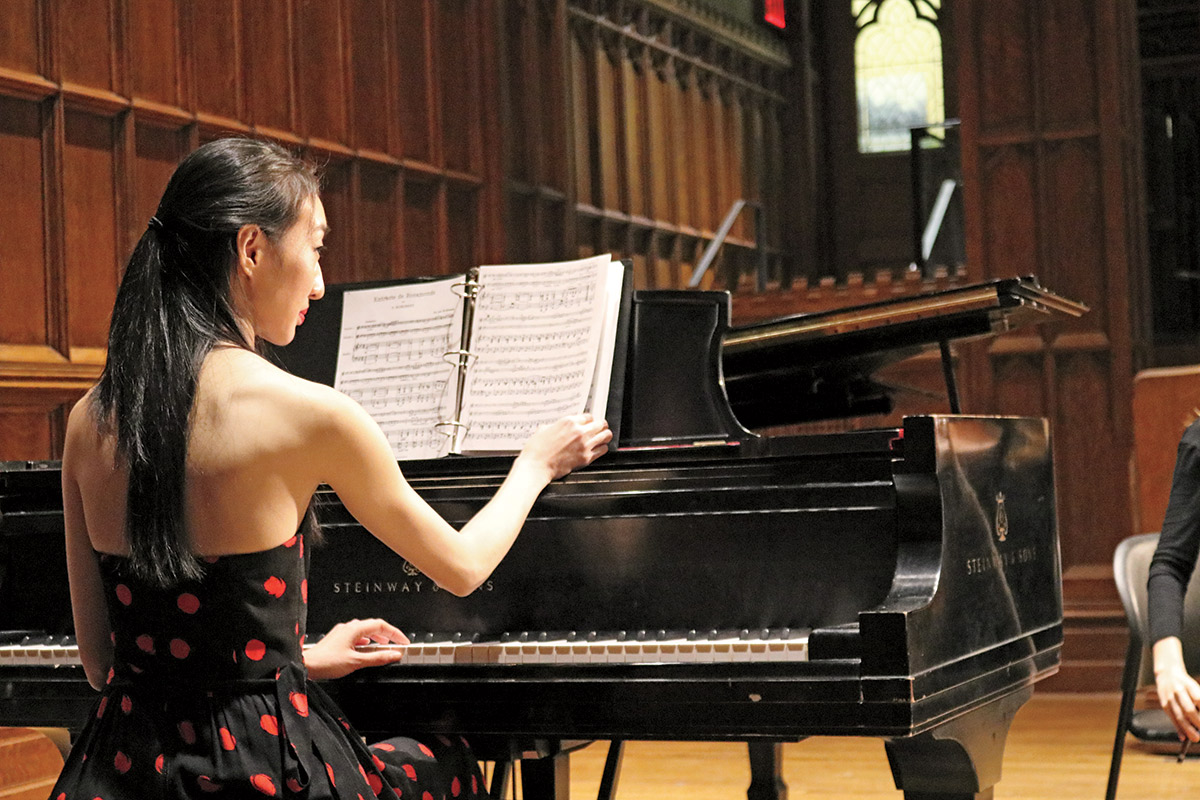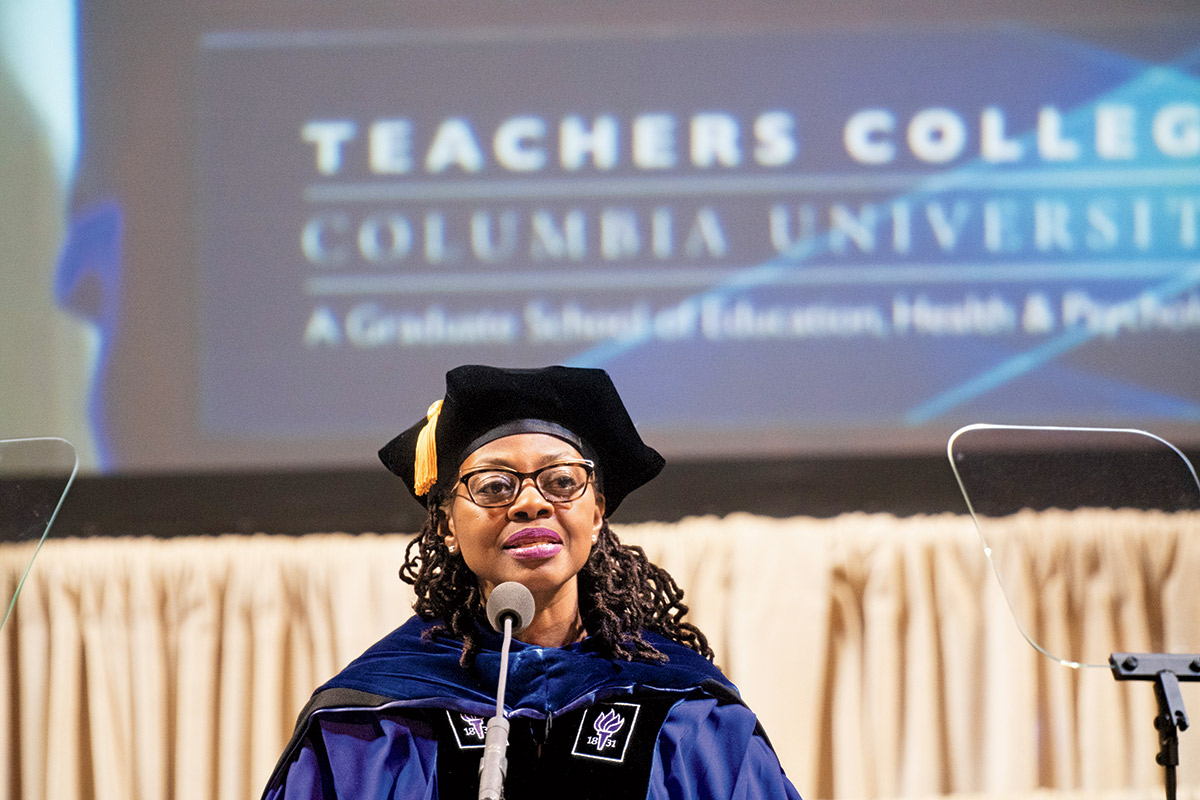TC’s New Chief Academic Officer: Stephanie J. Rowley
An educational psychologist and institution builder who unites great minds
Teachers College named Stephanie J. Rowley, a prominent educational psychologist and multidisciplinary research administrator at the University of Michigan (U-M), its next Provost, Dean of the College and Vice President for Academic Affairs, effective July 1, 2019. Rowley succeeded Thomas James, who will remain Professor and Co-Director — with Ansley T. Erickson, Associate Professor of History & Education — of TC’s Center on History and Education.
“Stephanie Rowley is an eminent scholar and a consummate institution builder with a record of success in uniting great minds to develop innovative approaches and solutions to society’s pressing challenges,” said TC President Thomas Bailey. “She will help us make the most of our many strengths and deepen and expand our already vibrant connections to our surrounding community and external partner organizations.”
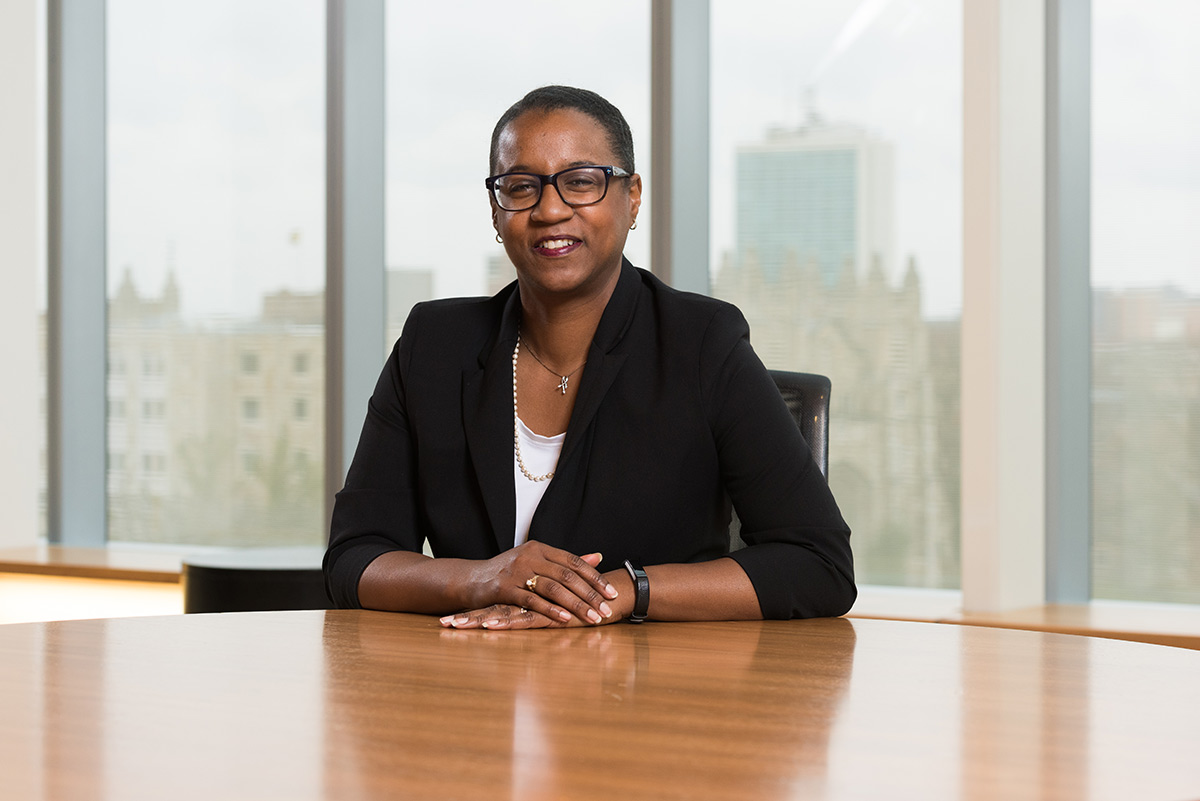
Stephanie J. Rowley (Photo: Courtesy of Michigan Photography)
“I was initially drawn by TC’s rich history and reputation, but soon realized that this role would be an ideal fit for me because of the possibilities for combining multidisciplinary strengths,” Rowley said. “TC has so many visible and highly engaged scholars. There’s so much opportunity to connect with New York City and its public schools and to reap the benefits of being in such a diverse and dynamic place.”
A Professor of Psychology in the College of Literature, Science, and the Arts, Rowley has served as Associate Vice President for Research (Social Sciences and Humanities), in U-M’s Office of Research. She previously chaired U-M’s Department of Psychology and its Combined Program in Education and Psychology.
There’s so much opportunity to connect with New York City and its public schools and to reap the benefits of being in such a diverse and dynamic place.
— Stephanie J. Rowley, Provost, Dean of the College & Vice President for Academic Affairs
As a research administrator, Rowley has ensured the participation of social scientists and humanists in key multidisciplinary University initiatives. As a scholar, she has explored how parents’ social experiences, attitudes and beliefs influence how they socialize their children, and how that socialization process affects children’s motivation in school.
S. Jack Hu, U-M’s Vice President for Research, said Rowley has provided “exceptional leadership in developing and coordinating innovative initiatives.” Elizabeth Cole, U-M’s Interim Dean, said Rowley has made “lasting impacts through her collaborative style, her commitment to diversity and inclusion, and her unfailing support for faculty research.”
Combining the Fundamental and the Applied: JoAnne Williams, TC’s new Finance & Administration VP
A focus on maximizing TC’s impact on society
JoAnne Williams, who has held top administrative positions in academia and industry, became Teachers College’s Vice President for Finance & Administration in February.
JoAnne Williams, TC’s new Finance & Administration VP
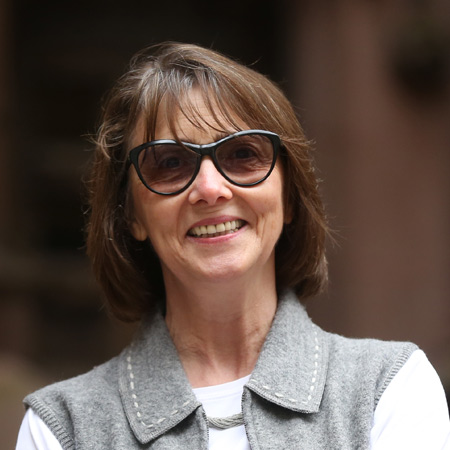
JoAnne Williams, TC’s new Finance & Administration VP (Photograph: Bruce Gilbert)
Born in Costa Rica, Williams grew up and worked throughout South America and Europe. She earned a law degree at University of Detroit Mercy; worked for General Motors, Electronic Data Systems and Siemens handling issues related to product development and research, intellectual property rights, initial public offerings, computer-aided engineering design and business ventures worldwide; and eventually switched to academia. She served as Clemson University’s Assistant Vice President for Research & Economic Development; as Associate Dean of Administration for Cornell University’s College of Engineering; and most recently, as Vice Dean for Administration for Rutgers University’s School of Arts & Sciences in New Brunswick, New Jersey. Her responsibilities there included fiscal planning, administrative services and facilities. She also oversaw the Office of Human Resources, the Office of Finance and Business Affairs, and the Office of Information Technology.
Williams is excited about leveraging TC’s assets to achieve the maximum impact to society. She says she has quickly realized that “the name ‘Teachers College’ is a bit of a misnomer, because there is so much other wonderful stuff going on here.” She also sees “a real desire to do intentional things to improve the world — a combination of the fundamental and the applied.”
In Praise of Failure
A Nobel Laureate delivers TC’s inaugural Yu Panglin Lecture
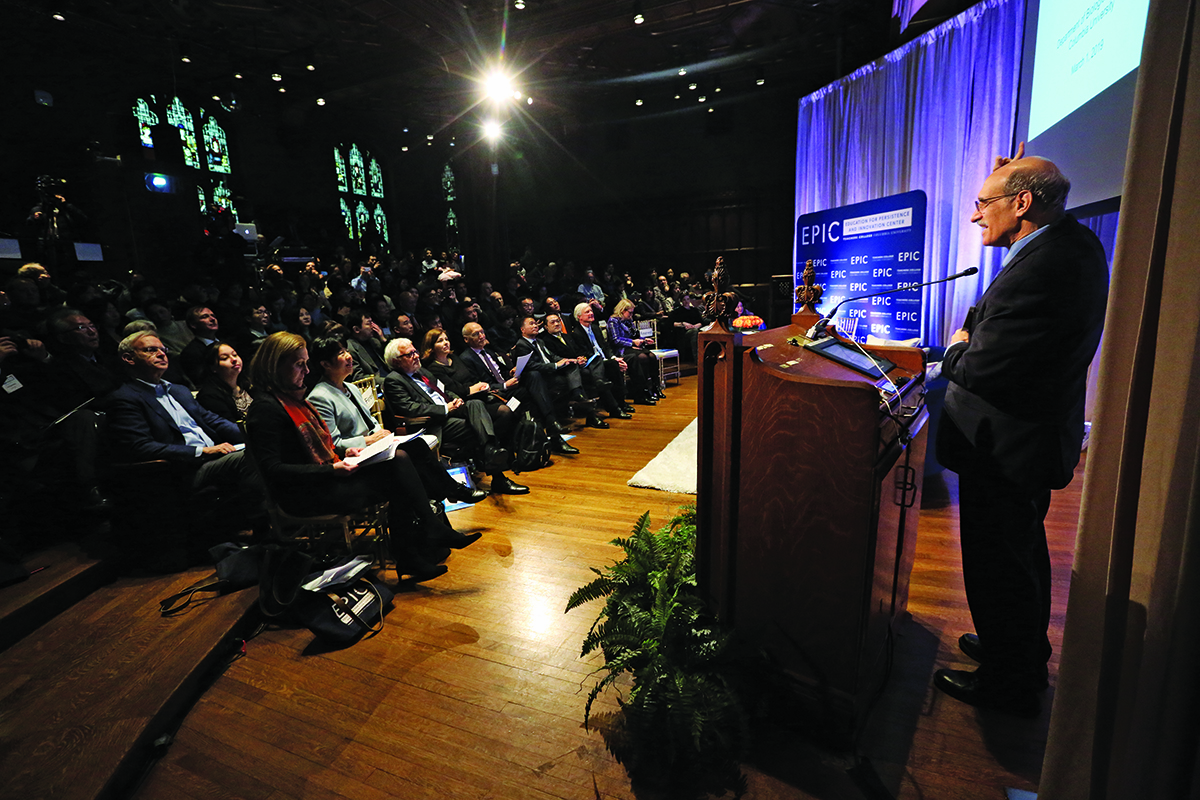
CHEMICAL REACTION Martin Chalfie charmed his audience (Photograph: Bruce Gilbert)
Calling failure “part of discovering nature and the world around us,” 2008 chemistry Nobel Laureate Martin Chalfie delivered the inaugural Yu Panglin Lecture of TC’s Education for Persistence and Innovation Center (EPIC) in March. TC President Thomas Bailey and Dennis Pang, Yu Panglin Charitable Trust Chairman, expanded the Trust’s partnership with EPIC.
Chalfie, University Professor at Columbia, has produced a biological marker for gene expression. The late Yu Panglin, a global real estate developer who overcame poverty, donated his fortune to charity. The Yu Panglin Charitable Trust supports work in medicine, education and disaster relief.
They’ve Got Mail: Thanking TC’s faculty
TC’s first Faculty Appreciation Week, in March, yielded hundreds of online testimonials to faculty’s brilliance, mentorship and concern for a better world.
Doctoral student Jessica Smagler thanked Dirck Roosevelt, Associate Professor in Curriculum & Teaching, “for always building me up when I start to doubt myself.”
A female student thanked Dolores Perin, Professor of Psychology & Education, for “being someone I can trust, ask advice, and rely on as a woman and a mentor in the academy!”
Others spoke of awakening to TC’s richness: “Professor Erica Walker — Your patience is beyond all understanding . . . you have encouraged me to slow down and embrace the experience.”
And this anonymous note confirmed that faculty help students realize their dreams:
Lisa Wright: You once asked us, “What is your superpower?” and challenged us to think about our strengths. I have seen your power — in your work with students, faculty and staff. Thank you for sharing your superpower and challenging us to find the power within ourselves.
The Civic Engineer
Tom James has a created a community that fosters ideas
Two words reflect Tom James’ 12-year tenure as TC’s Provost, Dean and VP for Academic Affairs: “innovation” and “civility.”
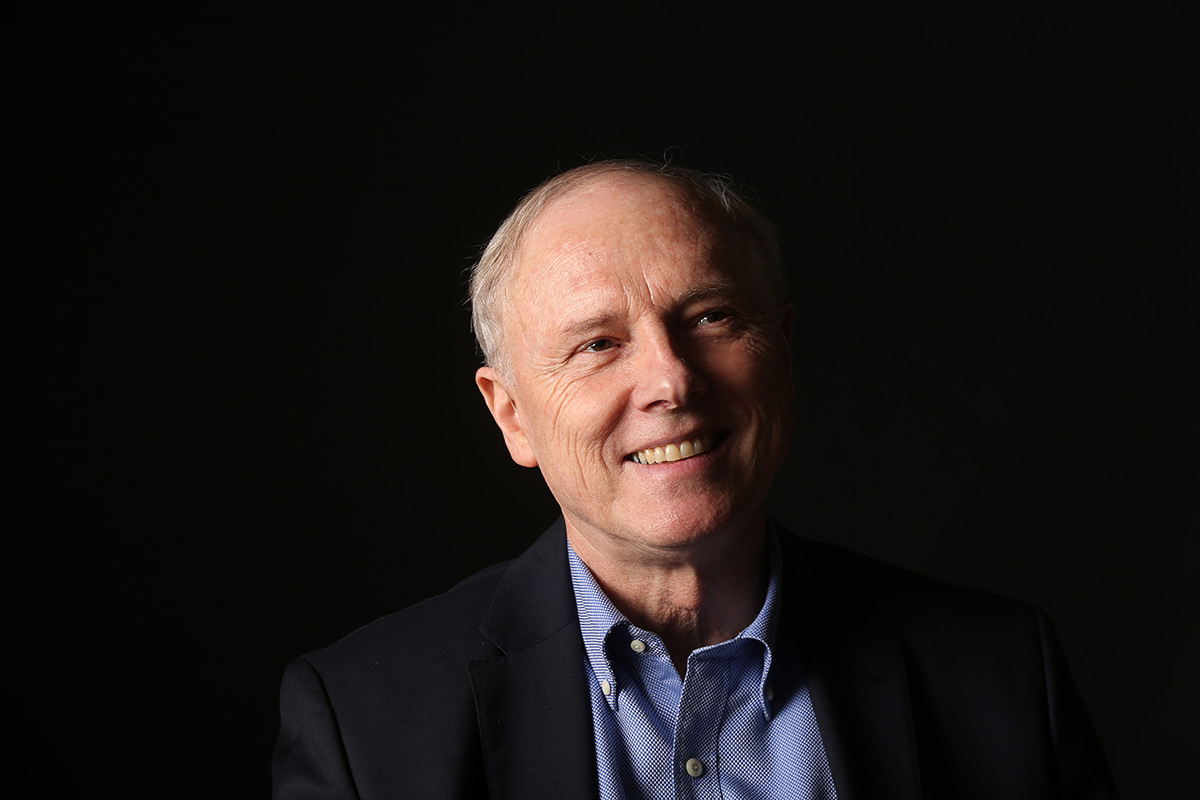
Safeguarding the Commons James says the current climate in America reminds him of “The Tragedy of the Commons,” an essay about Britain’s 19th-century privatization of its pasture land. “Education,” he says, “is one of our commons as a democratic society.” (Photograph: Bruce Gilbert)
“Change comes from everywhere in an organization,” says James, who stepped down July 1st but remains Professor and Co-Director (with Ansley Erickson) of TC’s Center on History and Education. “The challenge is to create cooperation and mutual respect so everyone feels free to think, speak and act.”
In 2007, James established the Provost’s Investment Fund to seed promising cross-disciplinary faculty projects. He has led TC’s hiring of over 70 new faculty members who “are envisioning and shaping the future of their fields.” And he has helped faculty members — and faculty of color in particular — become department chairs, chaired professors, heads of TC centers and institutes, senior advisors and associate deans.
“I want us to be a community where people develop their leadership potential,” he says. “That matters not just for TC, but for all education, health and psychology.”
At a time of rising segregation and class and political tensions, TC must emphasize education’s importance: “What’s happening in this country reminds me of Garrett Hardin’s essay on ‘The Tragedy of the Commons’ [about the 19th-century privatization of Britain’s common pastures]. Public education is one of our commons as a democratic society.” At TC, safeguarding that commons begins with reaffirming Teachers College “as a learning organization, for ourselves as well as for students.”
Following a sabbatical, James will engage in research, teaching and service, including a seminar aiming to create a sequel to the late TC president and education historian Lawrence A. Cremin’s History of Teachers College, which covered the first half of TC’s nearly 130-year history. And James will keep advocating for education for all. “I believe our march toward universal access and educational rights is unstoppable, because that’s what this society is all about.” — JOE LEVINE
Change comes from everywhere in an organization. The challenge is to create cooperation and mutual respect so everyone feels free to think, speak and act.
— Thomas James
A Full Plate at TC’s Tisch Food Center
Serving wholesome school lunch sounds simple — but not in New York City. TC’s Laurie M. Tisch Center for Food, Education & Policy in the Nutrition Education Program is evaluating efforts to transform 1,700 school cafeterias to prepare fresh food from scratch.
Separately, Executive Director Pamela Koch will teach an online summer course to equip public school teachers to teach food and nutrition education. In January, the Center testified for a bill requiring annual reporting to the City Council on nutrition education in schools. And the Center is supporting the WELL Campaign, a legislative effort to provide New York students with health-supporting schools.
Erica Walker is TC’s Clifford Brewster Upton Professor
Erica N. Walker, an authority on the sociocultural factors and educational policies and practices that facilitate math engagement, learning and performance, is TC’s new Clifford Brewster Upton Professor of Mathematical Education.
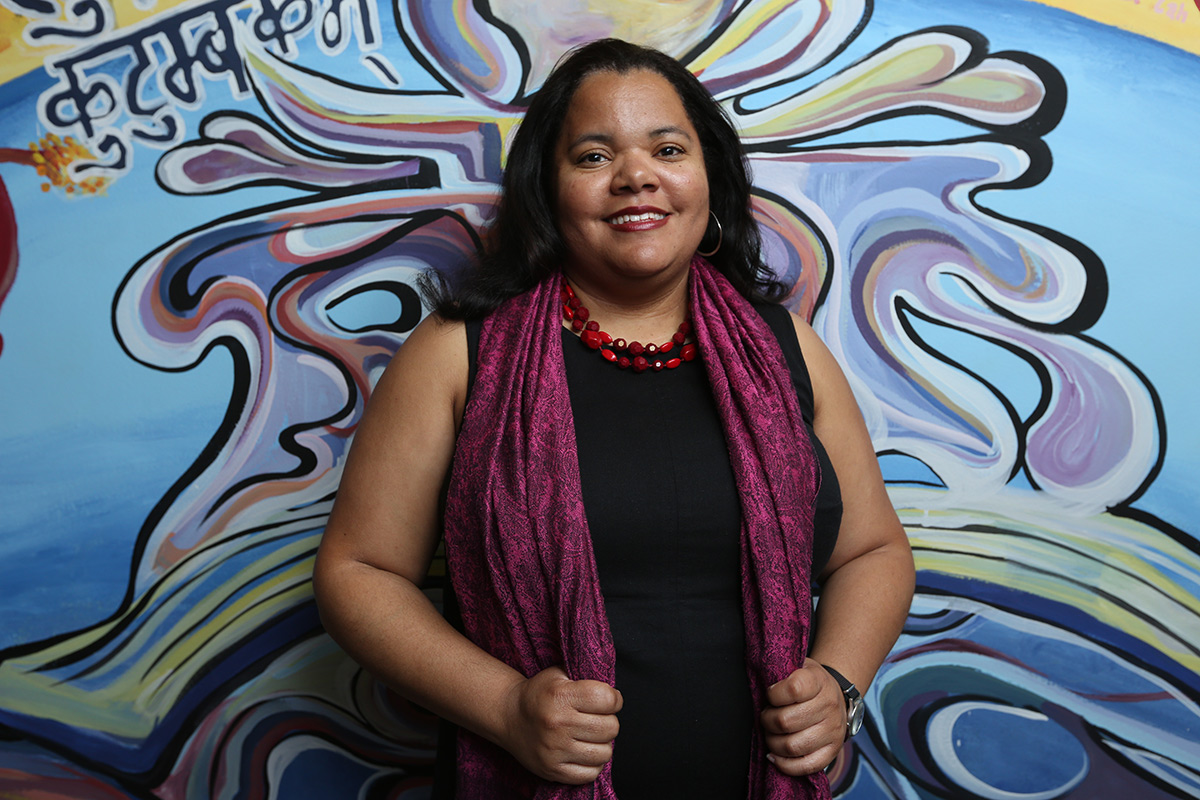
Erica Walker Clifford Brewster Upton Professor of Mathematical Education (Photograph: Bruce Gilbert)
Walker chairs TC’s Department of Mathematics, Science & Technology and directs its Institute for Urban and Minority Education. A former high school teacher, she has written Building Mathematics Learning Communities: Improving Outcomes in Urban High Schools and Beyond Banneker: Black Mathematicians and the Paths to Excellence. In 2015, she delivered the Mathematical Association of America’s 100th-anniversary lecture.
“The Upton Chair signifies a true thought leader in mathematics education,” said Provost Thomas James. “Professor Walker’s new paradigm for leveraging informal mathematical ‘socialization’ has inspired more young students to engage in creative problem-solving and identify as ‘math people.’ She has created a successful model for peer tutoring in high schools. And she is universally respected as a statesperson at Teachers College and in academia.”
Loud Reports: Headline-Makers from TC

Education assessment’s next wave; getting reading programs on the same page; “schools of choice” that are too choosy (Illustration: Jasu Hu)
As 44 states began meeting the 2015 Every Student Succeeds Act’s testing and accountability requirements, TC measurement-evaluation expert Madhabi Chatterji warned in a National Education Policy Center publication of a new wave of inappropriate high-stakes testing. Many states planned to use testing to rank, rate or examine schools’ or education systems’ growth, which Chatterji likened to “misreading a Fahrenheit thermometer in degrees Celsius.”
Thomas Hatch, Co-Director of TC’s National Center for Restructuring Education, Schools & Teaching (NCREST), and colleagues Meesuk Ahn, Daniel Ferguson and Alyson Rumberger reported that the 100-plus intermediary organizations and support providers that help New York City public schools with K–3 reading have the goals, services, reach and personnel to improve outcomes. The authors call for “explicit strategies” for “greater coherence . . . to increase the effectiveness of the sector overall.”
Economists Peter Bergman (TC) and Isaac McFarlin, Jr., (University of Florida College of Education) sent emails from fictitious parents to thousands of charter and traditional public schools of choice. Each email asked if any student could apply but randomly signaled the inquiring student’s disability status, behavior quality or prior academic achievement and randomly implied race, gender or household structure. Charters and traditional public schools of choice more often ignored inquiries from students they perceived as more challenging to educate, with charters ignoring inquiries from special-needs students at higher rates — a “key source of potential inequality,” Bergman says.
IN BRIEF
WAR’S MORAL INJURIES
Psychological treatment can help military veterans who witness or experience violence. But what about those who participated in violence? “Something before God cannot necessarily be fixed by cognitive therapy,” Lisa Miller, founder of the TC Spirituality Mind Body Institute, told 24 visiting U.S. Army chaplains in October. The chaplains must seek to cultivate the spiritual growth to counter such “moral injury,” Miller said. “You are the embodiment of spiritual life. When you speak from your core, you are giving others permission to do so as well.”
PROBING ANTI-SEMITISM’S RISE
TC’s December symposium “Anti-Semitism Today: Why are Hate Crimes on the Rise in the U.S.?” probed the 57 percent increase in acts of discrimination and outright hatred toward Jews during Donald Trump’s first year as President. Unless the United States tackles racism and anti-Semitism on social media, said American Jewish Committee CEO David Harris, “we are sitting ducks.” And Mehnaz Afridi, Director of Manhattan College’s Holocaust, Genocide and Interfaith Education Center, who is Muslim, said universities must “create an inclusive environment” to discuss groups’ experiences. TC staff member Harriet Jackson organized the event.
A Better World Through a Stronger TC
The College inaugurates a new president, and a new chapter begins

CAREER PATHING Inaugurated as TC’s 11th President, Thomas Bailey called on the College to create pathways to success for all. (Photograph: Don Pollard)
Thomas Bailey was inaugurated as Teachers College’s 11th president on December 7, 2018. The ceremony, in Riverside Church, capped a week of festivities that included a faculty symposium, student musical performances and a spaghetti dinner hosted by Bailey and his wife, Carmenza. In remarks to faculty, students, staff, alumni and friends, Bailey said that “by building a stronger and more effective Teachers College, we will strengthen our ability to help build a stronger and more equitable society — and by truly marshaling our resources to achieve our broader social goals, we will become a stronger and more effective and sustainable institution.”
Reading from a poem she wrote, faculty member Yolanda Sealey-Ruiz declared: “Know that we support you, Mr. President, in your vision. We lift the pen to co-write the story you seek to tell.”
Read more at tc.edu/inauguration
